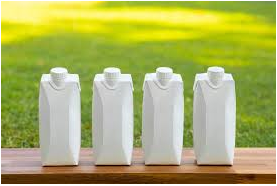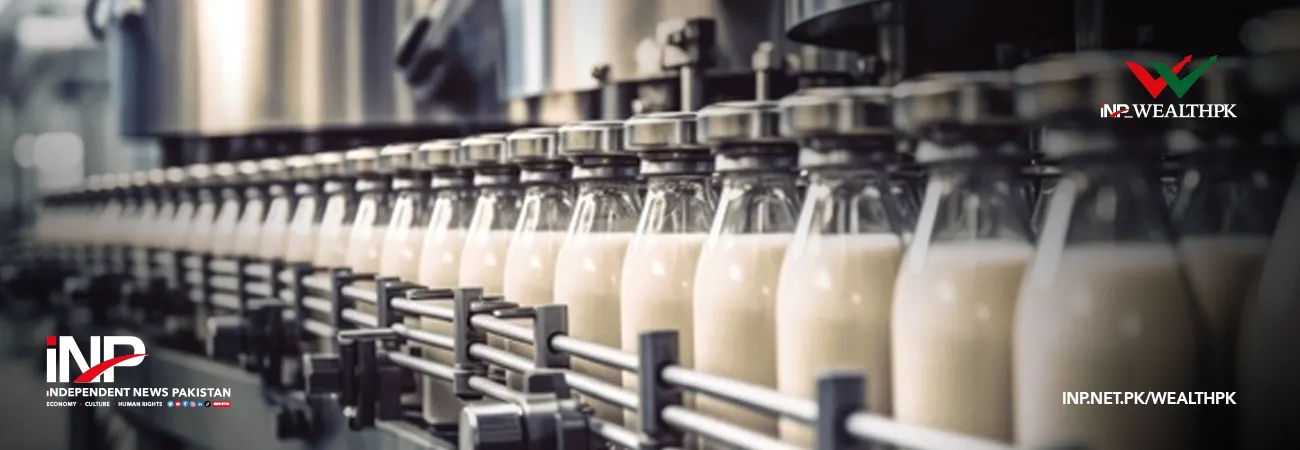INP-WealthPk
Muhammad Luqman
Although Pakistan produces around 70 billion liters of milk annually, a vast majority of the country’s 124 million consumers still lack access to safe milk, as less than 10 percent of total production is pasteurized before reaching the market.
Industry experts say the country’s heavily informal and unregulated dairy supply chain remains the biggest obstacle to safe milk consumption. More than 90 percent of milk is sold as loose, raw milk by traditional milkmen, with little or no quality control.

“Pasteurization — heating milk to a specific temperature for a set time — destroys harmful bacteria and other pathogens that can cause diseases such as typhoid fever and tuberculosis,” explained Dr. Muhammad Junaid, dairy expert and consultant at the Federal Ministry of National Food Security and Research, while speaking to Wealth Pakistan.
Dr. Junaid said Pakistan’s milk pasteurization industry is too small to meet the fast-growing demand, especially in large urban centers like Karachi, Lahore, Faisalabad, and Rawalpindi. “It is mainly due to the capital-intensive nature of the industry that the number of pasteurization units in Pakistan has not grown rapidly,” he noted.
He added that the cold-chain and testing infrastructure needed to keep milk safe is severely inadequate. Without proper chilling and transportation, raw milk spoils quickly, pushing middlemen to use harmful adulterants — such as ice, soda, or even formalin — to delay spoilage.
As a result, Pakistan’s reliance on informal supply chains, combined with weak enforcement of food safety laws, has led to widespread consumption of substandard milk. This, experts warn, is contributing to health problems and malnutrition nationwide.
According to dairy industry stakeholders, processed milk accounts for less than 10 percent of total consumption, leaving existing processing plants underutilized and discouraging new investment.
“The formal milk market is not only small but also highly consolidated, with over 90 percent of the UHT milk market controlled by just two companies,” said Dr. Shehzad Amin, Chief Executive Officer of the Pakistan Dairy Association (PDA), in an interview with Wealth Pakistan.
He pointed out that poor regulation and enforcement at both federal and provincial levels allow unpasteurized milk to dominate the market. “The Punjab Pasteurization Act 2017, which was meant to ban loose milk and mandate pasteurization, exists but has not been implemented,” he regretted.
Dr. Amin emphasized the need for nationwide public education campaigns to inform consumers about the health and hygiene benefits of processed milk. He also called for the removal of the 18 percent General Sales Tax (GST) on packaged milk, saying it has already caused more than a 20 percent drop in sales. “Withdrawing GST could help bring down prices and make safe milk more affordable for the average consumer,” he added.
Nutrition experts echo these concerns. Dr. Ali Haider, a Lahore-based nutritionist, said unpasteurized milk with high bacterial loads is a key factor behind the spread of digestive disorders and allergies. “Many diseases linked to indigestion and allergies can be prevented by consuming pasteurized milk,” he said.
Dr. Haider noted that cultural preferences also play a role in resisting processed milk. “Many people wrongly believe boiling loose milk is better because it creates a creamy layer (‘malai’). Packaged UHT milk does not produce malai due to homogenization, and products like tea and yogurt made from loose milk are seen as tastier,” he explained.
Meanwhile, the Punjab Food Authority (PFA) has intensified its crackdown on adulterated milk. A PFA spokesperson told Wealth Pakistan that the authority had inspected over 500,000 dairy points, milk shops, and collection centers across the province since January 1, imposing fines totaling Rs267 million on sellers of impure and contaminated milk.
Experts stress that scaling up pasteurization facilities, strengthening the cold chain, enforcing food safety laws, and educating consumers are essential steps if Pakistan wants to ensure safe milk for its people and reduce health risks linked to contaminated dairy products.
Credit: INP-WealthPk









